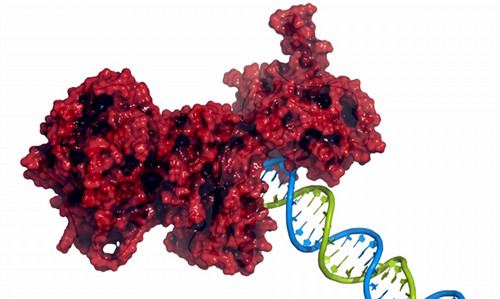AstraZeneca’s PARP inhibitor gains market edge with breast cancer approval
January 17, 2018
Source: Biopharmadive
 882
882

AstraZeneca still enjoys the perks of being first to market with its PARP inhibitor. Lynparza (olaparib) sales were $81 million from July to September, whereas net revenues were $16.8 million and $39.4 million for Clovis Oncology Inc.'s Rubraca (rucaparib) and Tesaro Inc.'s Zejula (niraparib), respectively.
Yet Lynparza's place at the top of the PARP pile hasn't been unshakable. While overall sales of the drug increased 40% year-over-year during the third quarter, they were down 9% in the U.S. due to competitor products. Tesaro, for one, touted how Zejula snagged a 60% market share of the ovarian cancer population treated with a PARP inhibitor. The Massachusetts biotech, along with Clovis, are also working to expand the labels for their drugs.
They'll have to work harder, though. The FDA's new approval hands Lynparza its third indication while Zejula and Rubraca each hold one. It also opens the door to a whole new patient population. Research published in the Journal of Clinical Oncology determined patients with inherited BRCA mutations have a 50% to 70% risk of developing breast cancer.
On a larger scale, the approval helps justify why AstraZeneca is betting so heavily on Lynparza.
Following the devastating failure of its PD-L1 inhibitor Imfinzi (durvalumab) in the MYSTIC trial, AstraZeneca inked an $8.5 billion deal with Merck & Co. to, in part, investigate the combination of Lynparza and Keytruda (pembrolizumab).
"This additional approval for Lynparza represents an important advance for women with HER2-negative metastatic breast cancer with a germline BRCA mutation, which is a difficult-to-treat cancer. Moreover, this approval adds further impetus to our important collaboration with AstraZeneca in developing cancer therapies," said Roy Baynes, chief medical officer at Merck Research Laboratories, said in the Jan. 12 statement.
The FDA made its decision based on positive results from the Phase 3 trial, which showed about 60% of patients treated with Lynparza experienced tumor shrinkage. OlympiAD enrolled 302 patients with HER2-negative, BRCA-mutated metastatic breast cancer.
"This approval demonstrates the current paradigm of developing drugs that target the underlying genetic causes of a cancer, often across cancer types," Richard Pazdur, acting director of the Office of Hematology and Oncology Products in the FDA’s Center for Drug Evaluation and Research, said in a statement from the agency.
AstraZeneca shares were up less than 1% to $35.69 apiece in Friday afternoon trading.
By Ddu
Read more on
- Breakthrough Device Designation Granted to Digital Intervention for Alzheimer’s August 27, 2018
- FDA Approved Eye Drop Oxervate to Treat Neurotrophic Keratitis August 27, 2018
- Experimental Ebola Treatments Approved by Congo as it Sees Flare-Up in Cases August 24, 2018
- First Dual-Lead Nerve Stimulator for Pain Management gets FDA Nod August 22, 2018
- Bristol-Myers Squibb’s Opdivo Ensures a Lung Cancer Position August 22, 2018
your submission has already been received.
OK
Subscribe
Please enter a valid Email address!
Submit
The most relevant industry news & insight will be sent to you every two weeks.



